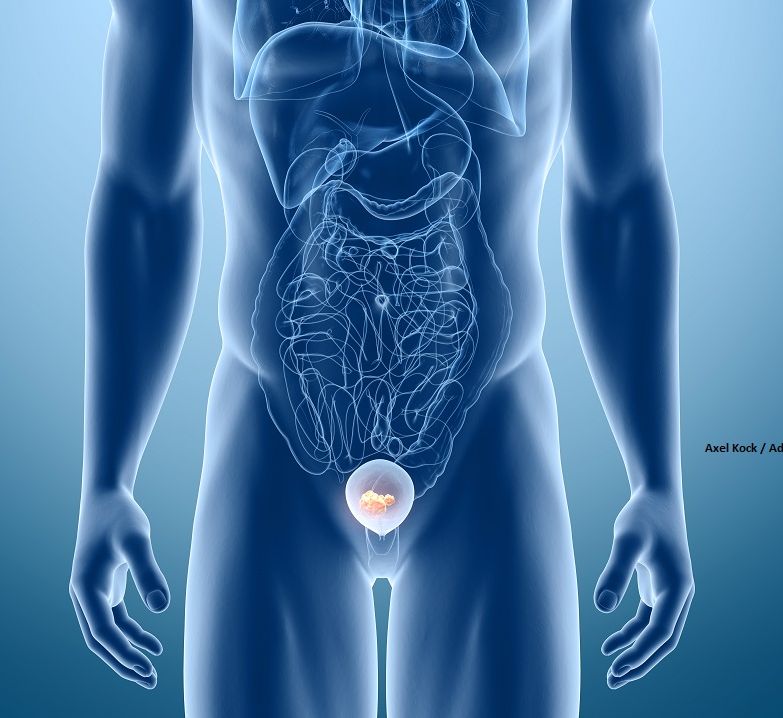FDA Grants RMAT Designation to Detalimogene in BCG-Unresponsive NMIBC
Detalimogene voraplasmid demonstrated a 71% anytime CR rate in this non–muscle-invasive bladder cancer population in the phase 1/2 LEGEND trial.
Detalimogene voraplasmid demonstrated a 71% anytime CR rate in this non–muscle-invasive bladder cancer population in the phase 1/2 LEGEND trial.

The FDA has granted regenerative medicine advanced therapy (RMAT) designation to detalimogene voraplasmid (EG-70) for use as a therapy in high-risk, BCG-unresponsive non–muscle-invasive bladder cancer (NMIBC) with carcinoma in situ (CIS), according to a press release from the developer, enGene Holdings.1
Previously, the FDA granted fast track designation to detalimogene in the same patient population but for those with or without resected papillary tumors who are unable to undergo cystectomy.
The RMAT designation was supported by results from the pivotal phase 1/2 LEGEND trial (NCT04752722) that evaluated the safety and efficacy of intravesical administration of detalimogene in the bladder and its effect on patients with bladder tumors who have NMIBC. Preliminary results from cohort 1 of the trial were shared at the 2025 American Society of Clinical Oncology Genitourinary Cancers Symposium.2
At any time during the trial, the complete response (CR) rate was 71% (n = 15 of 21); at 3 months, the CR rate was 67%; at 6 months, the CR rate was 47%; and the 6-month Kaplan Meier estimate was a 51% CR rate. Of 8 patients who had a CR at 6 months, all were continuing treatment at the time of the analysis, and of 4 patients who did not have a CR, all terminated treatment. Notably, 1 noncomplete response at 3 months turned into a CR at 6 months and 3 CRs at 3 months turned into noncomplete responses at 6 months. Of the 4 patients who achieved CR and whose last recorded data were at 3 months, all were continuing treatment, and of 5 patients who did not achieve CR at 3 months, all terminated treatment.
“Receiving the RMAT designation highlights the promising profile of detalimogene and its potential to address the high unmet need in NMIBC,” said Ron Cooper, CEO of enGene, in the press release.1 “[Patients with] bladder cancer with limited options cannot wait, and we are enthusiastic about potentially expediting the regulatory process to bring a first-in-class treatment to patients.”
Cohort 1 of the trial included approximately 100 patients with high-risk, BCG-unresponsive NMIBC with CIS, with or without papillary disease. The trial had also added cohort 2a, which included patients with NMIBC with CIS who were naive to BCG treatment; cohort 2b, which included patients with NMIBC with CIS who had not received adequate BCG treatment; and cohort 3, which included patients with high-risk, BCG-unresponsive NMIBC with papillary-only disease.
In the results shared at the meeting, a total of 21 patients with high-risk, BCG-unresponsive NMIBC with CIS were included in the efficacy analysis. Key eligibility criteria were listed as an age of 18 years or older, an ECOG performance status from 0 to 2, ineligibility for cystectomy, and adequate bladder function with ability to retain the study drug for at least 60 minutes.
Detalimogene voraplasmid was administered at 0.8 mg/mL in a 50-mL solution instilled via catheter over four 12-week cycles on weeks 1, 2, 5, and 6 per cycle. Maintenance treatment had patients continue with detalimogene intravesically on weeks 1 and 2 of each 12-week cycle for up to 4 extra cycles; if patients maintained CR at cycle 8, they could continue for up to 4 more cycles or enter follow-up.
At the end of cycle 1, if patients had CR or a noncomplete response due to persistent CIS or recurrent high-grade Ta disease, they continued to cycle 2; otherwise, they discontinued if they had progressive disease. At the end of cycle 2, only those who experienced a CR continued for up to 2 more cycles; if there was persistent, recurrent, or progressive disease, they discontinued. If patients had CR at the end of cycle 4, they continued to maintenance treatment.
The trial’s primary end points were CR at 48 weeks and safety. Secondary end points included progression-free survival, duration of response, cystectomy-free survival, relapse-free survival, and health-related quality of life.
The safety analysis included all dosed patients from the LEGEND phase 2 cohorts as of the data cutoff of September 13, 2024 (n = 42).
Treatment-related adverse events (TRAEs) of any grade occurred in 47.6% of patients, with none experiencing a TRAE of grades 3, 4, or 5. The most common TRAEs were dysuria (21.4%), bladder spasm (19.0%), fatigue (11.9%), and pollakiuria (11.9%). All TRAEs were reversible and consistent with catheterization. No patients discontinued treatment due to TRAEs.
References
- FDA grants RMAT designation for enGene’s detalimogene, enabling potential for expedited review in high-risk, non-muscle invasive bladder cancer. News release. enGene Holdings Inc. June 25, 2025. Accessed June 26, 2025. https://tinyurl.com/5chukj63
- Taylor JA III, Joshi S, Satkunasivam R, et al. Preliminary results from LEGEND: a phase 2 study of detalimogene voraplasmid (EG-70), a novel, non-viral intravesical gene therapy for patients with BCG-unresponsive non-muscle invasive bladder cancer (NMIBC) with carcinoma in situ (CIS). J Clin Oncol. 2025;43(suppl 5):802. doi:10.1200/JCO.2025.43.5_suppl.802